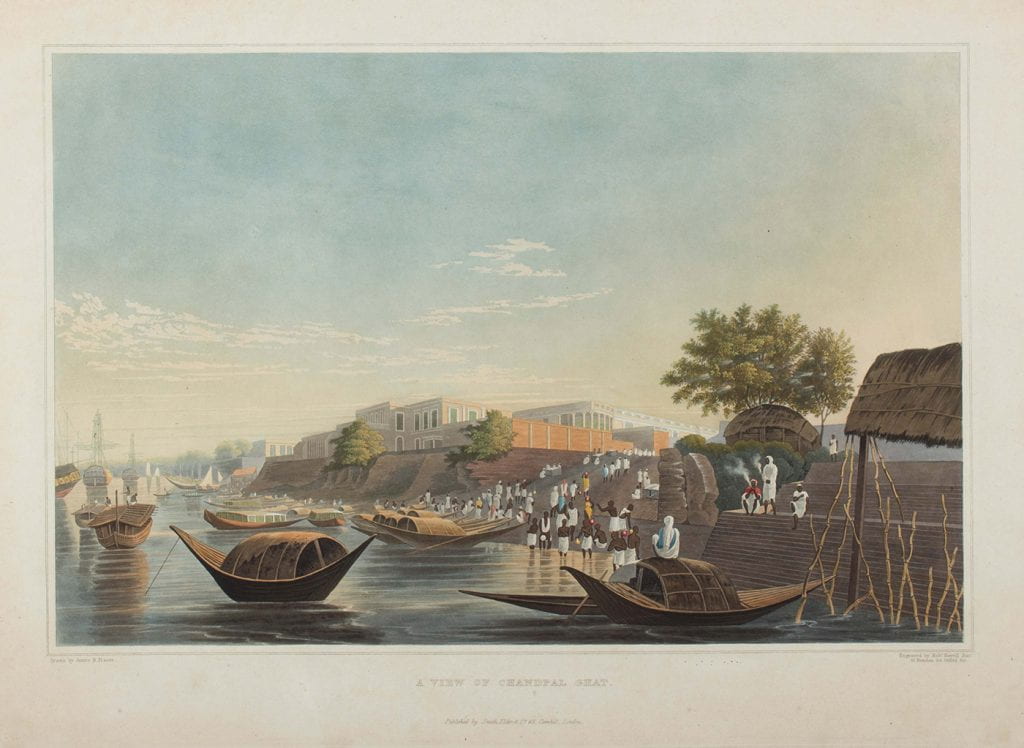
Looking for a class to add to your Spring 2022 schedule? Check out these South Asia–related courses!

From Colonial India to Post-Independence South Asia
ASCL 54.08 | HIST 76 | Taught by Elizabeth Lhost
Time: 11 (MWF 11:30-12:35, T 12:15-1:05)
This course examines the history of modern South Asia (focusing on the nations of India, Pakistan and Bangladesh) from the eighteenth century to the present. Key themes include: the character of British colonialism and its impact on Indian society; cultural change and the “invention” of new religious and caste identities; the Indian middle class; the emergence of the Indian national movement under Mahatma Gandhi; Partition in 1947 and Partition violence; and post-independence South Asian politics and economy.
Highlights include:
- An opportunity to work with digital primary sources in the South Asia Open Archives on JSTOR.
- A chance to imagine the effects of historical change from different perspectives by keeping a historical. character journal.
- Freedom to write about history in new forms, including character studies and screenplays.

Voice and Images from Asian Borderlands
ASCL 70.12 | Taught by Miya Xie
Time: 2 (MWF 2:10-3:15, Th 1:20-2:10)
Borderlands are where modern nation-states are geographically defined and where their orders are both challenged and reinforced. This course studies the formation of modern nations in Asia and its consequences in the twentieth century from a “borderland perspective.” The cases to be studied include Hokkaido in Japan, Manchuria in mainland China, the Partition of India and Pakistan, the division of the two Koreas, the Taiwan island, and the highlands connecting East and South Asia commonly referred to as Zomia. The long historical process from colonial expansion to post-war demarcation across Asia, along with the ordinary people’s experience of this process, is witnessed by writers and artists from the borderlands with distinctive creativity and criticism. The disciplinary perspectives involved in the course range from literature, film, and art to history, anthropology, and linguistics. Enrollment is open, and there are no prerequisites. You do not need to know any Asian language to take the course.
Highlights include:
- Study literary and artistic works about six Asian borderlands: Okinawa in Japan, Manchuria in mainland China, the Partition of India and Pakistan, the division of the two Koreas, Taiwan, and the highlands connecting East and South Asia, commonly referred to as Zomia.
- Gain a general understanding of the histories and cultures of some of the most troubled areas in Asia in the twentieth century, areas that shaped the geopolitics of the continent.
- Learn how to appreciate literary and artistic works within their specific historical and geographical contexts and in comparison with each other.
- Acquire the critical approach of borderland studies, an emerging but increasingly important approach in both the humanities and the social sciences.

Colonialism and Culture in Asia and Africa
HIST 96.01 | Taught by Douglas Haynes
Time: 3A (MW 3:30-5:20, M 5:30-6:20)
This course examines the ideologies and cultural practices associated with European colonialism and with opposition to European colonialism in Asia and Africa, focusing on the period of “high imperialism” between 1870 and 1930. After exploring the major forms of imperial ideology, the course then looks at various manifestations of colonial culture, including science and technology, medicine, anthropology, photography, art, sport and gender practices. Finally, the course treats bourgeois nationalism and the cultures/ideologies of anti-colonialism.
Highlights:
- Discuss the ideology and culture of colonialism in Asia and Africa at the height of European and American imperialism (1870-1930), as well as the influence of colonial cultural forms on the cultures of Asians and Africans.
- Read Gandhi’s Hind Swaraj and David Arnold’s Colonizing the Body, as well as comparative works with extensive discussion of South Asia, like Michael Adas, Machines as the Measure of Men, and Antoinette Burton’s study Burdens of History.


